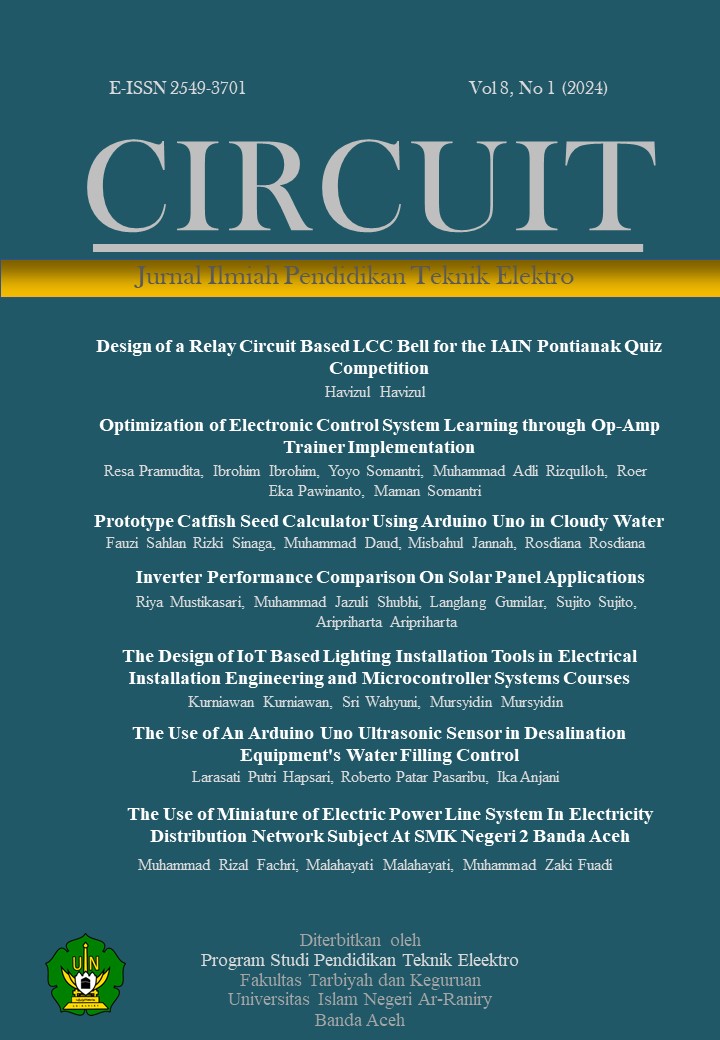Vocational High School 5 Telkom Banda Aceh's Occupational Safety and Health Module Design
DOI:
https://doi.org/10.22373/crc.v8i1.20800Keywords:
Occupational Health and Safety, Work Safety Module, ADDIEAbstract
In educational institutions, occupational safety and health are significant issues. Students and institutions may suffer losses as a result of accidents and issues with occupational health. Thus, it's critical that pupils have comprehensive understanding of K3. SMK Negeri 5 Telkom Banda Aceh observations revealed a deficiency in instructional resources for K3 instruction. Therefore, the goal of the research is to use the ADDIE model (Analysis, Design, Development, Implementation, and Evaluation) in conjunction with the Research and Development (R&D) technique to design an Occupational Safety and Health Module. Student response questionnaires, validation questionnaires from media experts, and material experts were used in the data collection process. According to the research findings, 92.5% of material experts and 77.5% of media experts believe that the K3 module is adequate from a media standpoint. Student responses also attain a score of 92.4%, suggesting that the K3 module is appropriate for use in education. In summary, the K3 module has emerged as a highly successful educational tool for maximizing students' engagement with K3.
Downloads
Published
Issue
Section
License
Authors who publish in CIRCUIT: Jurnal Ilmiah Pendidikan Teknik Elektro agree to the following terms:
- Authors retain copyright and grant the journal right of first publication with the work licensed under a Creative Commons Attribution-ShareAlike 4.0 International License (CC BY-SA 4.0) that allows others to share and adapt the work with an acknowledgement of the authorship and initial publication in this journal
- Authors are able to enter into separate, additional contractual arrangements for the non-exclusive distribution of the journal's published version of the work (e.g., post it to an institutional repository or publish it in a book), with an acknowledgment of its initial publication in this journal.
- Authors are permitted and encouraged to post their work online (e.g., in institutional repositories or on their website) prior to and during the submission process, as it can lead to productive exchanges, as well as earlier and greater citation of published work. (See The Effect of Open Acces)

